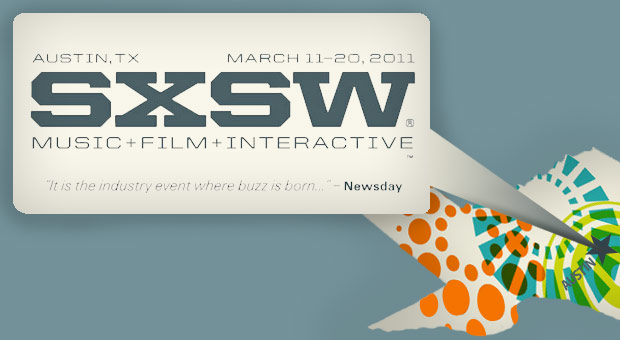Before I jump into the topic of this post, I just want to report that SXSW 2011 is indeed living up to its hype. Tons of interesting panels, people, and an amazingly good spirit throughout. It is definitely the best convention/trade show/conference I’ve ever been to. Now, to the topic at hand. Two of my […]
Before I jump into the topic of this post, I just want to report that SXSW 2011 is indeed living up to its hype. Tons of interesting panels, people, and an amazingly good spirit throughout. It is definitely the best convention/trade show/conference I’ve ever been to.
Now, to the topic at hand. Two of my favorite panels thus far have been, “Being Funny On Twitter (Without Getting Fired),” with talk from Chapin Clark of R/GA and Ross Morrison of Huge Inc. on bringing humor and personality to brands through Twitter, as well as “Social Media and Comedy: F**k Yeah!”, which featured comedy-Twitter giants Marc Maron and Michael Ian Black, among others. These were especially timely panels after the Chrysler Twitter debacle last week.
While the two panels attacked a similar topic from different angles – “Being Funny” was about knowing when to use humor on Twitter and for which type of clients, and “Social Media and Comedy” was more about how Twitter has become a new tool for actual comedians – they both ended up presenting similar messages. As Maron said during the “Social Media and Comedy” panel, “You’re not rewarding your fans [if you’re always promoting something].” In other words, people go to Twitter for honesty. If you’re a comedian or a corporation, people aren’t interested in following you to be bombarded with advertisements for your next stand-up special DVD or product release. They want to get a sense of who you are and what your personality is. That’s why being funny on Twitter is valuable to companies where it doesn’t stretch the brand image too far, and why Twitter has become such a great source for comedy from comedians: it’s all about cutting through the facade and learning something real about a person or company.
During “Being Funny,” R/GA’s Clark talked not just about being funny on Twitter, but general conduct as well for when you’re managing a corporate Twitter stream. First-person Tweets from a corporate account tend to raise eyebrows, whether they’re humorous or not — people want to know who is actually writing this stuff. Remember that you’re not just playing to the room, you’re playing to the world. If not everyone is going to get your joke, especially if it’s a corporate Twitter account, it’s best not to Tweet it. Also, however, don’t be afraid to experiment a little bit. If you’re going to try and create a Twitter account for a company with some humor and personality injected, try different styles of humor and see what the audience likes. But what happens when you achieve Twitter success through comedy? Do you hold back once you have a mass audience?
At “Social Media and Comedy,” we asked Marc Maron and Michael Ian Black during the panel whether or not they feel pressure to self-censor as their Twitter followings grow. Both said no — they’re only emboldened to share more of themselves, though Ian Black admitted that when he does feel like he’s self-censoring, he says something more outrageous. This might not be the best strategy for a company using humor, but it does speak to the need to be consistent and not let your followers down. As long as you’re being true to them and yourself, you’re doing your job on Twitter.
We have lots more coming in the days ahead from SXSW 2011, including a photo report, more blog posts, and as always, more Twitter updates! Keep an eye on this space, as well as our Twitter account, @FlightpathNY, or the hashtag #austinsix for all updates from the Flightpathians at SXSW 2011.
